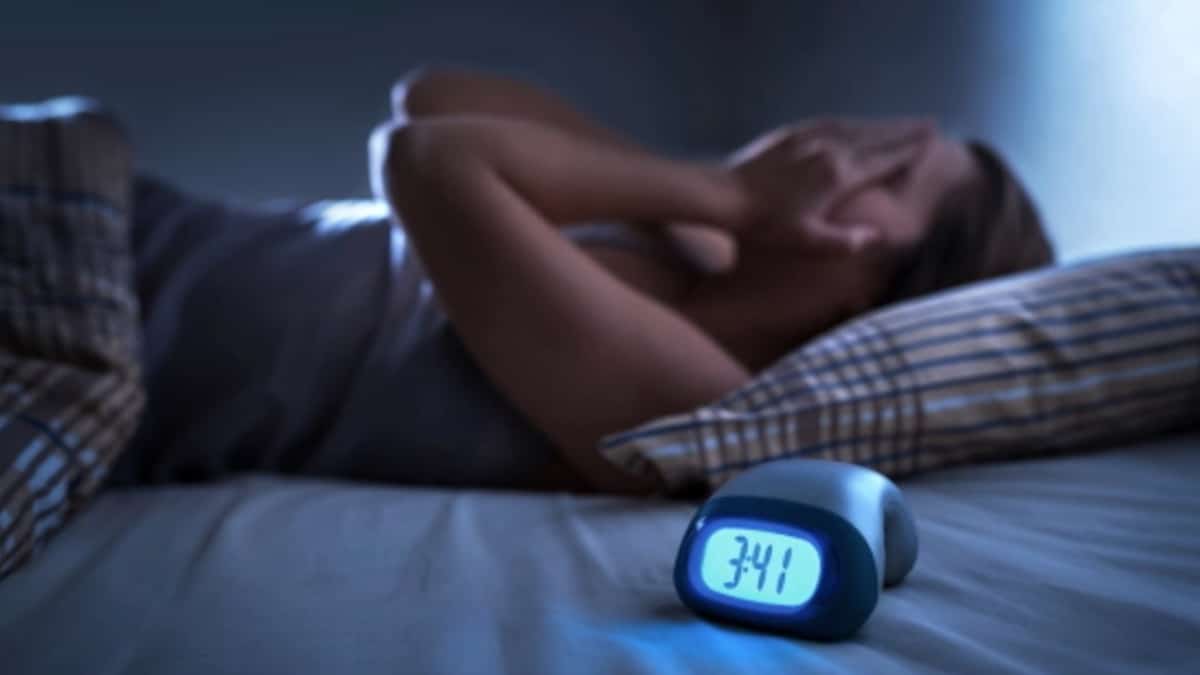
Are You Having Trouble Sleeping Lately? ‘Coronasomnia’ Might Be the Reason

The pandemic has increased sleep disorders and insomnia for many. University of Maryland Medical System
According to the National Heart, Lung, and Blood Institute, between 50 to 70 million Americans have sleep disorders, and 1 in 3 adults do not regularly get the recommended 7 to 8 hours per day of uninterrupted sleep. The pandemic has made this worse, causing disruptions to many sleep routines and exacerbating preexisting challenges to getting a good night’s rest, CNN reported.
Some experts have coined the trend “coronasomnia,” highlighting the connection between the pandemic and increased sleeplessness, said clinical psychology and behavioral sleep medicine researcher Christina Perpaoli Parker, reported CNN. The changes range from more subtle, like increased restlessness or poorer quality of sleep, to a nightmarish “flat-out hell” of chronic lack of sufficient sleep or full-on insomnia, the news report said.
According to the Sleep Foundation, reasons for increased sleeplessness during the pandemic could include disruptions to daily routines, health and economic concerns, social isolation, increased family and work stress and too much screen time.
University of Maryland Medical System noted that lack of light may also contribute. Being inside for quarantine limits exposure to natural light, which signals to the body when to be awake and asleep.
Anxiety and biology may also bolster the connection.
Humans are wired to stay awake in the face of danger, so the fears surrounding the first widespread global pandemic in 100 years have pushed many into unhealthy sleep patterns, said professor of medicine Jennifer Martin, CNN reported.
“It would have been an unfortunate mistake of evolution if we were sleepy when there was a tiger outside of our cave and we went to sleep,” Martin told the news report. “When we perceive a threat, we are awake. That’s adaptive. That’s good for us. Yet when there is a large threat in our environment like a global pandemic, one of our initial biological stress reactions is to not sleep so we can be prepared to deal with the threat.”
The Anxiety and Depression Association of America agreed that anxiety causes sleeping problems, and found new research that sleep deprivation might cause anxiety disorders. Amidst the public health and economic crises, fear and sleeplessness could be stuck in a positive feedback loop that is contributing to diminished health and wellness.
Data confirms that sleep difficulties have increased during the pandemic. A Kaiser Family Foundation study found that 36% of Americans reported difficulty sleeping due to pandemic stress. Sleep medication prescriptions rose 14.8% during the first month of shutdowns, CNN reported. Not surprisingly, anxiety medication prescriptions also rose 34% during the same time period. And, while many are sleeping more during the pandemic, a new study indicated the quality of rest is declining precipitously.
This is a problem because “[g]ood sleep undergirds every aspect of mental and physical health, which we need to support now more than ever,” Pierpaoli Parker told CNN.
The Sleep Foundation reported that while quality sleep is always important, it takes on higher significance during a pandemic. Sleep boosts the immune system, heightens brain function, enhances mood and helps combat depression, anxiety, bipolar disorder and Post-Traumatic Stress Disorder, the Foundation reported.
The Harvard Gazette reported that poor sleep also increases disease risk for diabetes, cardiovascular disease, hypertension, obesity, Alzheimer’s and dementia.
Experts suggested a few tips to boost quality sleep, even during the pandemic:
- Set a consistent sleep routine that might be different from your non-pandemic one which factors in commute times and omits virtual schooling, the Harvard Gazette suggested.
- Get regular exercise to tire out your body, CNN reported.
- Don’t nap because it ruins your “appetite” for sleep, reported the Harvard Gazette.
- Reserve the bed for sleep and intimacy to train the mind to relax there. “Working-from-home shouldn’t be working-from-bed. It also means avoiding bringing a laptop into bed to watch a movie or series,” the Sleep Foundation advised.
- Use relaxation techniques such as meditation, yoga and reading, the Sleep Foundation offered.
- Try new ways to boost your coping mechanisms with pandemic stress, such as baking bread, adopting a pet or plant, organizing your home or learning a new language.
- Limit screen time, which can be stimulating, for 1-2 hours before bed, CNN suggested.
- Avoid stressful news before bedtime. “Doomscrolling” and oversaturation of bad news right before sleep can lead to stressful and poor sleep, the Cleveland Clinic reported.
- Schedule in “worry time” so your mind gets accustomed to “worrying at the same time and same place every day” and so those worries interfere less with sleep, CNN suggested.
- Best CBD for Sleep (Lab-Tested, Person-Tested Oils) - EcoWatch
- Why an Organic Mattress? An Avocado (Eco)Review - EcoWatch
- Anxiety Medication Prescriptions up 34% Since Coronavirus ...
- More Than Half of COVID-19 Survivors in Study Reported ...
- 5 Surprising Ways People Are Coping During the Pandemic ...

 233k
233k  41k
41k  Subscribe
Subscribe 